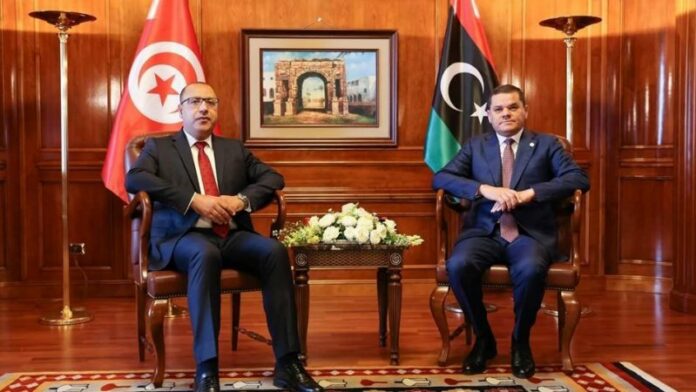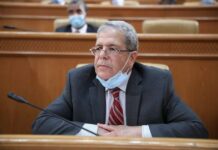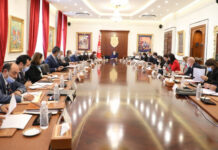The Libyan Consulate General in Tunisia called on its citizens whose money or property was confiscated by the Tunisian authorities during the past years in southern Tunisia to submit written requests to be presented to the Committee for Lifting Restrictions on Libyan Funds in Tunisia.
The Libyan government, headed by Abdelhamid Dbeiba, is pressing to recover the Libyans’ confiscated funds in Tunisia, after the file was discussed between the two authorities during the official visit of Prime Minister Hichem Mechichi to Tripoli on May 22nd.
The Confiscated Libyan Funds: a New Predicament for Tunisian Finance
The Libyan Consulate General in Tunisia called on its citizens whose money was confiscated or their property was confiscated by the Tunisian authorities during the past years in southern Tunisia to submit written requests to be presented to the Committee for Lifting Restrictions on Libyan Funds in Tunisia.
The Libyan government, headed by Abdelhamid Dbeiba, is pressing to recover the Libyans’ confiscated funds in Tunisia, after the file was discussed between the two authorities during the official visit of Prime Minister Hichem Mechichi to Tripoli on May 22nd.
Hazy Value of Money
Central Bank Governor Marouan Abbasi said in a parliament hearing in June that the funds that have been frozen since 2011 represent the largest number, in addition to funds reserved for Libyan citizens by the customs due to their ignorance of customs laws and exchange arrangements in Tunisia, noting that the value of the frozen Libyan funds is Between 140 and 150 million dollars.
In this context, the media attaché of the Libyan embassy in Tunisia, Jamal Al-Kafali, told “JDD Tunisie”, on Thursday, July 8, 2021, that a ministerial committee was formed in Libya that included the interior, foreign affairs, finance and all intervening parties, adding that this committee set out to collect the grievances of the Libyan citizens who were affected by confiscating their money.
He stressed that the value of the confiscated amounts will be determined only when the data is collected with the documents that will be considered by the aforementioned committee, noting that a month has been set for collecting complaints with the possibility of an extension.
For his part, the accounting expert, Anis Wahhabi, confirmed to “JDD Tunisie” that the true size of these funds is not known even to the Central Bank, because these amounts came after Libyans, due to the war in 2011, opened bank accounts in their own names or through one of their relatives or in the name of their companies. But there are those who transferred part of these amounts to other accounts abroad, and some of them disappeared.
He added that the problem remains that some of these funds entered the country in irregular ways, either through people or through bartering for goods, noting that some Libyans smuggled their money to Tunisia in 2011 for fear of war, but they did not abide by the Tunisian state law, which is based on Exact rules in financial transactions and exchange arrangements.
“Swap for Hospital Debts”
Accounting expert Anis Wahhabi stressed that Tunisia will face a liquidity crisis due to the confiscated Libyan funds because it will return it in hard currency in a delicate financial circumstance, explaining that the Tunisian state, when it was forced to collect an amount in hard currency from Tunisian banks to pay a loan installment, was unable to collect more than 270 billion.
Our interlocutor said that the proposal to exchange these funds for the accumulated Libyan debts for the benefit of Tunisian clinics that the Libyans did not pay during the war period is unrealistic, given that the value of the funds of the clinics is nothing compared to what the value of the confiscated Libyans’ money may be estimated, and it is also unreasonable to pay the Libyan state’s debts through funds of “natural persons” or private companies that are not involved in the financial obligations of the State.
The media attaché of the Libyan Embassy in Tunis, Jamal Al-Kafali, confirmed that Libya is about to pay the sanatoriums office after he sacrificed an amount of 40 million dollars to the health office of the embassy, and thus the Libyan state paid all the required amount, according to him.











